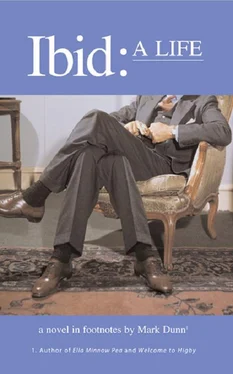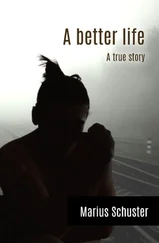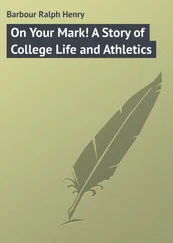8. I will become one of Governor Theodore Roosevelt’s Rough Riders and serve with him on his next military campaign, especially if it is in some exotic place such as Hawaii or Tahiti where island girls wink at you as they feed you coconut meat with their supple island fingers.
5 HOME AGAIN, HOME AGAIN, JIGGITY JIG
1. The homecoming was bliss.Jonathan’s Diary, JBP.
2. The next morning he entered Pettiville High School.Some say through the north door, others the south door; there is also a small camp that believes that Jonathan entered the school through the kitchen and nipped a egg cream cup as he passed. Obviously, this is inconsequential. (It is also becoming obvious that this book has been seriously over-researched.) The most salient fact here is that Jonathan was home safe and sound, and back in school. His circus days were over. Life for young Jonathan Blashette had finally taken a promising turn.
3. Even at this early age, Jonathan had become a crusader.Always a compassionate child, Jonathan’s concern for others less fortunate than himself and especially for the maltreated and oppressed of society only grew stronger as he matured into late adolescence. Living with side show performers whose physical defects had left them open to abuse and societal marginalizing only strengthened the boy’s resolve to fight for the rights of all those who were similarly relegated. This group included Native Americans as well. I discovered among Jonathan’s papers a very telling letter from author L. Frank Baum, dated January 27, 1904. It was apparently written in response to one that Jonathan had sent him. (Jonathan’s letter no longer exists. According to Baum, the drawing that accompanied it was immediately destroyed; one suspects that the letter itself quickly met the same end.) Nonetheless, the beacon of Jonathan’s courage shines through by inference.
Dear Master Blashette,
Thank you for your letter of January 22. For a young man of fifteen you express yourself quite well. If you were to choose a career as a writer you would be well served by your talent.
While I commend your command of the language, the content and thrust of your missive was most unwelcome. Your anger is curiously misdirected, or shall I say, microscopically directed. Is my position not one shared by hundreds of thousands of other white Americans? Will you write vituperative letters to all of these good people as well? You will be a busy lad. I suggest you get to work without delay!
I have not altered the opinion I held in the Aberdeen Saturday Pioneer editorials to which you refer, and that is that our safety even in this relatively new century continues to depend upon the total extermination of the Indians. I will agree with you that we have wronged the savage Red Man for centuries. But while you suggest that we make amends in whatever way possible for those decades of subjugation, I strongly argue the opposite course of action. The red-skinned barbarian will never submit to our civilizing influence. He will insist on retaining claim to land to which by his innate primitivism he has lost clear title. Anger-fueled violence toward our government will never subside. Without hope of reconciliation or redress, it is most efficacious for us to simply finish the job we started: wipe these untamed and untamable creatures from the face of the earth and be done with it. Unless we take swift action along these lines, our great nation will remain under-civilized, its enormous potential unrealized. We have no choice: the Red Man must be eliminated.My secretary tells me that your letter was accompanied by a picture which you had drawn that was of such a distressing nature that she was forced to place it directly into the hearth fire to ensure that none of the many children who wander into my office would find it and be harmed by the exposure.
Young man, I think it should be possible for you to disagree with me on this matter without making a shamefully obscene mockery of my work. My secretary tells me that your drawing depicted a full scale Indian assault on the characters in my children’s book The Wonderful Wizard of Oz . In the picture the savages have eviscerated the Scarecrow, chopped the Tin Man into a pile of scrap metal, and skinned the Lion and hung him upon a spit, his face twisted in agonizing death throes. Young Dorothy lay writhing upon the blood-streaked Yellow Road, her scalp peeled horrifically from her skull.
In addition to which, young man, your facts are erroneous. There are noIndians in the land of Oz. They were exterminated many years ago by the Munchkins. Oz is a far better (and safer) place for their absence. Perhaps some day you will see that our great country would fare even better (we have no witches here) should we follow the same course of action.
Perhaps it is good that I did not see the picture you drew. I am not sure that I would find it in my heart to forgive you for the violence you did to them.
Yours truly,
L. Frank Baum
4. A high point of the year was the tug-of-war.Griselda Duderstadt, Halcyon Days in Wilkinson County (El Dorado, Arkansas: Ouachita Publishing, 1974), 178-79. The Wilkinson County tug-of-war had been an annual event going back to 1870. Traditionally, male citizens of Pettiville would gather on the south bank of Gobles Creek as male citizens of neighboring Ambless gathered on the north bank with the exception of 1889 when Pettivillians, finding the south bank rain-soaked and mud-laden — a disadvantage they would not accept — requested of their north county rivals a switch, or at the very least, the drawing of lots to determine bank assignment. Amblessites, staunchly adhering to tradition, rejected both proposals. Rather than canceling the bout, the two teams agreed to join forces for this one year, the men of both towns gathering en masse on the north bank to pull down a roped oak tree across the creek. Failing miserably at this task (“We removed some bark.”) the men were mocked by their female kin, and the Pettiville Press published a demoralizing story under the headline, “Wilkinson County Hangs its Head. Oak Tree wins Annual Tug-of-war” (24 July1889). The emasculated men of the county did, however, get the last laugh; the next week they chopped down the deeply rooted oak, milled its timber and turned the boards into backsplashes for a number of Pettiville and Ambless outhouses. “This way,” explained Pettiville mayor Herman Sills, “whoever wanted to, could piss right on that damned uppity tree.”
5. Jonathan was caught playing craps behind the main tent of the Billy Wonder Traveling Revival.Interview with Odger Blashette.
6. Later Jonathan found Jesus at the Billy Wonder Traveling Revival.Jonathan’s chief duties as “silent deacon” during his summer on the tent show circuit after his conversion by Billy Wonder included standing as sentry to prevent “bedeviled” teenaged hooligans from pulling out the stakes and toppling the canvas tenting, collecting love offerings from those in attendance, and lending a hand to those spiritually and physically “infirm” who might wish to approach the altar to obtain soul-cleansing and chiropractic adjustments. Sixteen-, then seventeen-year-old Jonathan wrestled throughout the summer with a faith that seemed by turns impertinent and non-existent. “Is it possible to be a Christian and not believe in God?” Jonathan posed in his diary. He put this question to Billy Wonder, as well. “That’s a new one on me,” Billy responded, and then added somewhat cryptically, “I suppose you can drink the milk without dancing with the cow.” “And what milk would that be?” Jonathan inquired of the man who, in spite of his skillful religious legerdemain, did possess faith of a sort. “Why, the milk of human kindness!” Billy chirped, his bright, sun-glinted eyes reflecting thoughtful consideration of the concept. An interesting concept, Jonathan noted in his journal, from the wonder-working Billy Wonder. Jonathan’s Diary, 30 June 1904, JBP.
Читать дальше












